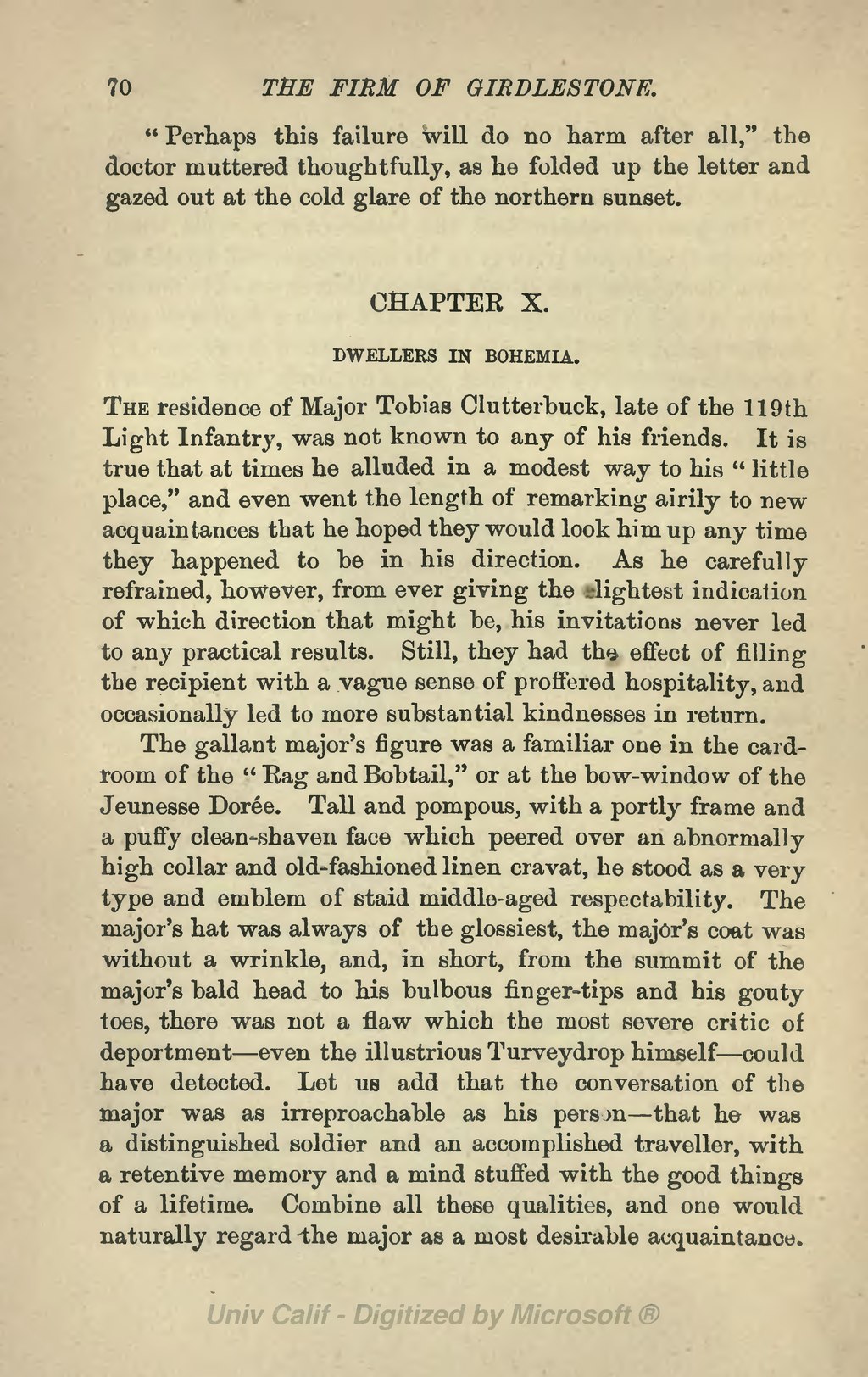"Perhaps this failure will do no harm after all," the doctor muttered thoughtfully, as he folded up the letter and gazed out at the cold glare of the northern sunset.
CHAPTER X.
DWELLERS IN BOHEMIA.
The residence of Major Tobias Clutterbuck, late of the 119th Light Infantry, was not known to any of his friends. It is true that at times he alluded in a modest way to his "little place," and even went to the length of remarking airily to new acquaintances that he hoped they would look him up any time they happened to be in his direction. As he carefully refrained, however, from ever giving the slightest indication of which direction that might be, his invitations never led to any practical results. Still they had the effect of filling the recipient with a vague sense of proffered hospitality, and occasionally led to more substantial kindnesses in return.
The gallant major's figure was a familiar one in the card-room of the "Rag and Bobtail", or at the bow-window of the Jeunesse Dorée. Tall and pompous, with a portly frame and a puffy clean-shaven face which peered over an abnormally high collar and old-fashioned linen cravat, he stood as a very type and emblem of staid middle-aged respectability. The major's hat was always of the glossiest, the major's coat was without a wrinkle, and, in short, from the summit of the major's bald head to his bulbous finger-tips and his gouty toes, there was not a flaw which the most severe critic of deportment—even the illustrious Turveydrop himself—could have detected. Let us add that the conversation of the major was as irreproachable as his person—that he was a distinguished soldier and an accomplished traveller, with a retentive memory and a mind stuffed with the good things of a lifetime. Combine all these qualities, and one would naturally regard the major as a most desirable acquaintance.
